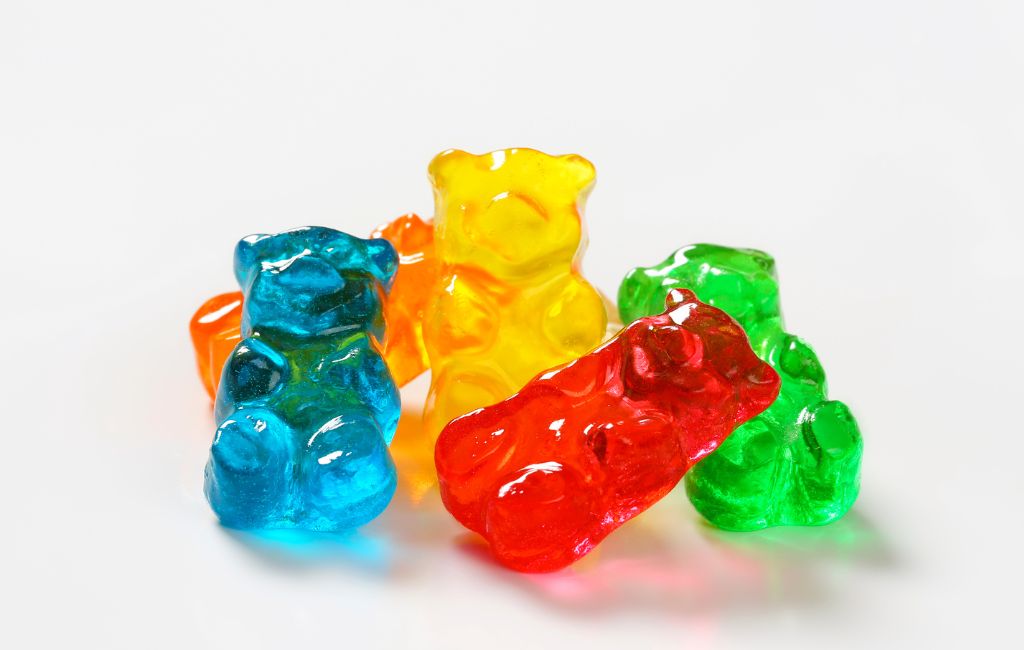Naturally Edibles for Anxiety
In today’s fast-paced world, anxiety has become a common concern for many individuals. While there are various treatments available, some people prefer natural alternatives to manage their symptoms. This article explores naturally edibles for anxiety, supported by research and examples.
Understanding Anxiety
Anxiety is a natural response to stress, characterized by feelings of worry, nervousness, or fear. It can manifest in different forms, such as generalized anxiety disorder, panic disorder, or social anxiety disorder. According to the Anxiety and Depression Association of America, anxiety disorders affect 18.1% of the U.S. population annually.
The Role of Diet in Managing Anxiety
Diet plays a significant role in mental health. Certain foods can influence brain chemistry, impacting mood and anxiety levels. Incorporating specific nutrients into one’s diet may help reduce anxiety symptoms.
Omega-3 Fatty Acids
Omega-3 fatty acids, found in fish like salmon and mackerel, have been linked to improved mental health. A study published in the Journal of Clinical Psychiatry found that omega-3 supplements reduced anxiety symptoms in medical students during exams.
- Salmon
- Mackerel
- Chia seeds
- Flaxseeds
- Walnuts
Magnesium-Rich Foods
Magnesium is a mineral that supports brain function and mood regulation. Research suggests that magnesium deficiency may contribute to anxiety. Foods rich in magnesium include:
- Spinach
- Almonds
- Avocados
- Dark chocolate
- Black beans
Probiotics and Fermented Foods
The gut-brain connection highlights the impact of gut health on mental well-being. Probiotics and fermented foods can promote a healthy gut microbiome, potentially reducing anxiety. A study in Psychiatry Research found that individuals who consumed more fermented foods experienced fewer social anxiety symptoms.
- Yogurt
- Kefir
- Sauerkraut
- Kimchi
- Miso
Herbal Teas
Herbal teas have been used for centuries to promote relaxation and reduce anxiety. Chamomile tea, in particular, has been studied for its calming effects. A study in the Journal of Clinical Psychopharmacology found that chamomile extract significantly reduced anxiety symptoms in individuals with generalized anxiety disorder.
- Chamomile tea
- Lavender tea
- Passionflower tea
- Lemon balm tea
- Green tea
Case Studies and Statistics
Several case studies and statistics support the use of natural edibles for anxiety management. For instance, a study published in the American Journal of Psychiatry found that individuals who consumed a diet rich in whole foods, including fruits, vegetables, and fish, had a lower risk of developing anxiety disorders.
Another study in the Journal of Affective Disorders reported that individuals who followed a Mediterranean diet, which emphasizes whole grains, fruits, vegetables, and healthy fats, experienced a significant reduction in anxiety symptoms.
Practical Tips for Incorporating Naturally Edibles
Incorporating naturally edibles into one’s diet can be simple and enjoyable. Here are some practical tips:
- Start your day with a smoothie containing spinach, chia seeds, and yogurt.
- Snack on a handful of almonds or walnuts for a magnesium boost.
- Include a serving of salmon or mackerel in your weekly meal plan.
- Enjoy a cup of chamomile tea before bedtime to promote relaxation.
- Add fermented foods like sauerkraut or kimchi to your meals.
Conclusion
Exploring naturally edible options for anxiety can offer a holistic approach to managing symptoms. By incorporating foods rich in omega-3 fatty acids, magnesium, probiotics, and herbal teas, individuals may experience improved mental well-being. While these natural alternatives can be beneficial, it’s always advisable to consult with a healthcare professional for personalized advice.
